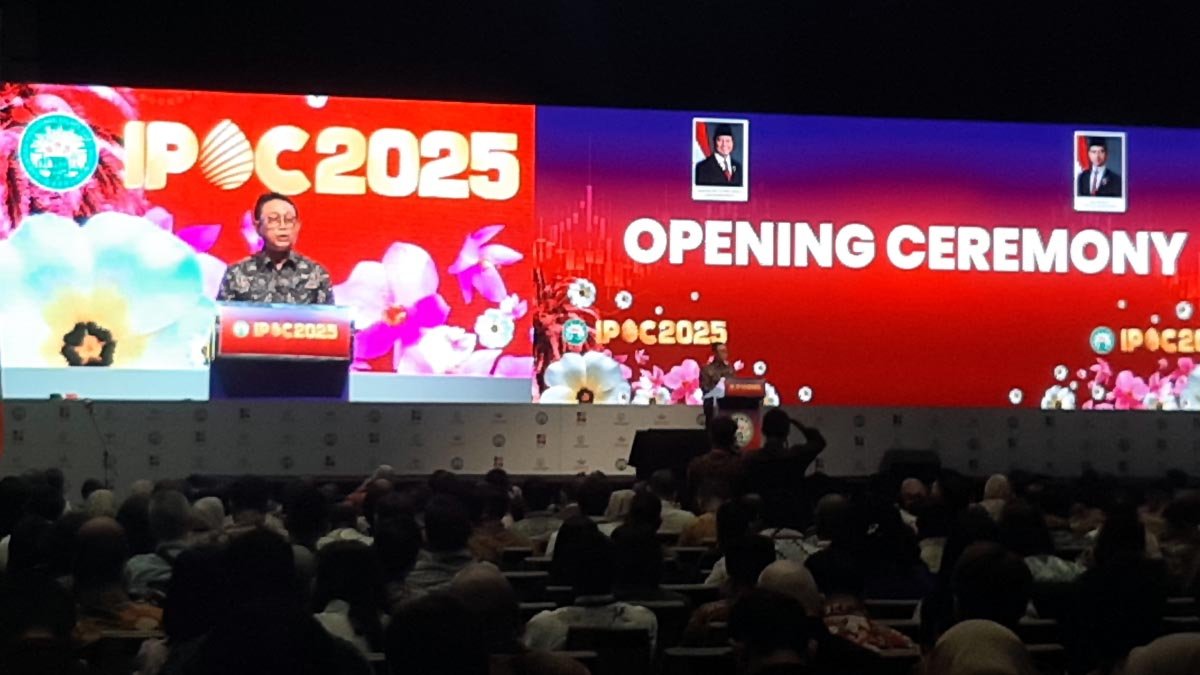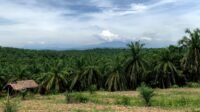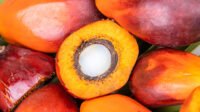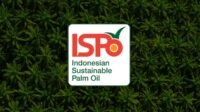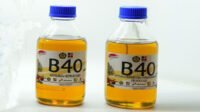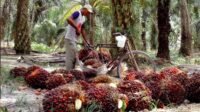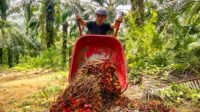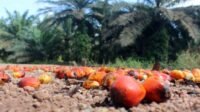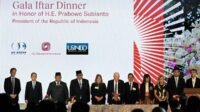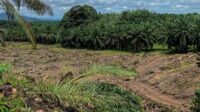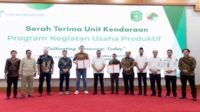PALMOILMAGAZINE, NUSA DUA, BALI — Indonesia’s palm oil industry is facing a level of complexity never experienced before. Shifting global trade dynamics, evolving governance standards, and new energy transition policies are redefining how the sector must move forward.
“These are the strategies GAPKI will implement,” said Eddy Martono, Chairman of the Indonesian Palm Oil Association (GAPKI), in his keynote address at the opening of the 21st Indonesian Palm Oil Conference (IPOC) in Bali on November 13, 2025.
Eddy’s optimism is grounded in solid performance data. As of September 2025, Indonesia’s palm oil production exceeded 43 million tons, marking an 11% increase compared to last year. Exports—including CPO and its derivatives, oleochemicals, and biodiesel—surged to over 25 million tons, generating an impressive USD 27.3 billion in foreign exchange, up 40% year-on-year.
Meanwhile, domestic consumption remained strong at 18.5 million tons, compared to 17.6 million tons in the previous year.
Also Read: GAPKI IPOC 2025 Officially Opens, Records Highest Number of Participants
“The performance of our industry shows clear acceleration,” Eddy said. “But these figures are also a wake-up call that we must adopt the right strategies across three key dimensions.”
First, Strengthening Global Trade Competitiveness; Under this year’s IPOC theme, “Navigating Complexity, Driving Growth: Governance, Biofuel Policy, and Global Trade,” Eddy emphasized that global trade presents both challenges and opportunities for Indonesia’s palm oil sector.
One of the most promising developments is the Indonesia–EU Comprehensive Economic Partnership Agreement (IEU CEPA), which opens new access to one of the world’s largest markets. However, he noted, the European Union Deforestation Regulation (EUDR) poses a serious test for all stakeholders in the industry.
“EUDR is not merely a regulation—it is a mirror reflecting the kind of system we must build and uphold within our own industry,” Eddy said. “Misinformation must be corrected with real data and facts. We must not just meet European standards but set even higher benchmarks ourselves.”
Also Read: Indonesia Palm Oil Hackathon 2025: Young Digital Innovators Strengthen the Future of Palm Oil
Second, Elevating Governance through ISPO; Eddy identified governance as the second major strategy. He stressed that the Indonesian Sustainable Palm Oil (ISPO) certification must not be treated as a mere symbol.
“ISPO is a product of national pride and sovereignty. It should be elevated to become a global gold standard,” he asserted.
After reinforcing domestic governance, Eddy added, the world must also understand that sustainability in Indonesia’s palm oil industry is not just a slogan — it is a long-term commitment. “Sustainability is GAPKI’s commitment,” he reaffirmed.
Third, Advancing Renewable Energy and Policy Synergy; GAPKI also voiced strong support for the government’s renewable energy policies, particularly the B35 and B40 biofuel mandates. These programs, Eddy said, provide a stable domestic demand base, contribute to emissions reduction, and offer hope for millions of smallholder farmers.
To sustain these gains, he called for stronger synergy between the government and the palm oil industry to create a regulatory environment that is stable, predictable, and conducive to growth.
“As a strategic national commodity, palm oil needs a policy ecosystem that supports agility and competitiveness,” Eddy emphasized. “To drive growth, every part of our government machinery must work in harmony.”
Empowering Smallholders and Inspiring Youth Innovation
Beyond trade and governance, GAPKI’s vision extends to empowering smallholders and youth innovators — the foundation and the future of Indonesia’s palm oil industry.
Each year, GAPKI recognizes the most productive smallholder cooperatives in the country. This year’s top honor went to a cooperative from East Kutai, East Kalimantan, achieving an impressive 37.4 tons of FFB per hectare, surpassing last year’s record of 37 tons.
At the same time, GAPKI highlighted youth innovation through the National Palm Oil Hackathon 2025, which attracted 139 student teams from 35 universities across Indonesia.
The winning team, BiFlow from ITS Surabaya, developed a groundbreaking project called RAPIDS, using machine learning and non-invasive radar technology for early detection of Ganoderma boninense — a game-changing innovation for sustainable palm oil cultivation.
Driving Research and Collaboration
Eddy also announced the launch of an important collaborative initiative under the Elaeidobius Consortium, comprising GAPKI, the Ministry of Agriculture, Indonesia Quarantine Agency, PT Riset Perkebunan Nusantara, PPKS, Plantation Fund Management Agency (BPDP), PIPPSI, and the Indonesian Entomological Society.
The consortium is partnering with the Tanzania Agricultural Research Institute (TARI) to enhance natural pollination efficiency and boost palm oil yields sustainably.
“The key to this effort lies in more efficient pollination,” Eddy explained. “By introducing three new species of Elaeidobius pollinators, we are optimistic this program will significantly increase Indonesia’s palm oil productivity in the coming years.”
Through these three strategies — strengthening trade competitiveness, enhancing governance, and promoting renewable energy collaboration — GAPKI envisions a more resilient, inclusive, and future-ready palm oil industry.
on’t miss out! Stay up to date with the latest IPOC 2025 news at Palmoilmagazine.com. (P3)

